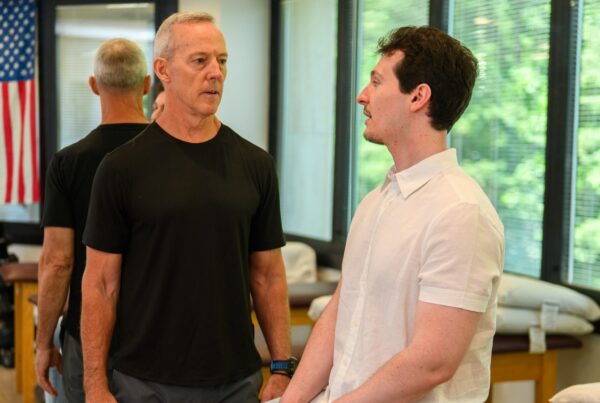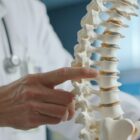Spinal fusion is a well-established procedure designed to stabilize the spine and relieve pain. The vast majority of patients recover well, regain mobility, and return to their normal activities without significant restrictions. However, in rare cases, there may be certain long-term considerations to protect the integrity of the fusion. Understanding these possibilities can help set realistic expectations and ensure the best possible outcome.
What to Expect After Spinal Fusion Surgery
For most patients, spinal fusion provides long-term relief with little to no ongoing limitations. The goal of the procedure is to stabilize the spine while preserving as much movement and function as possible. Immediately after surgery, there will be a structured recovery plan to allow healing. Once the bones have fully fused, many patients can return to their usual activities—including exercise, work, and travel—without issue.
However, in a small percentage of cases, certain precautions may be recommended to protect the surgical site and prevent complications. These restrictions vary depending on the type of fusion, the location in the spine, and individual healing factors. Your surgeon will guide you through what applies to your specific case.
It's time to get back
to doing what you love.
Possible Long-Term Considerations After Spinal Fusion
While most patients regain full function, there are some scenarios where modifications may be needed to ensure lasting spinal health. These typically fall into three categories:
Range of Motion Considerations
Fusion surgery permanently joins two or more vertebrae, meaning that segment of the spine will no longer move independently. Fortunately, the rest of the spine compensates for this change, and most people don’t notice a significant impact on their flexibility. However, in cases where multiple levels are fused, certain movements—such as extreme twisting or bending—may need to be limited.
Lifting and High-Impact Activities
Once the fusion has healed, patients can typically resume most forms of exercise. That said, for those with lumbar (lower back) fusions, particularly extensive ones, avoiding repetitive heavy lifting may be advised to prevent excess strain on the spine. Similarly, high-impact activities such as contact sports or competitive weightlifting might not be ideal for long-term spinal health in certain cases. Many patients find they can maintain an active lifestyle by shifting to low-impact activities like swimming, walking, or yoga.
Work and Daily Life Adjustments
Most people return to work without difficulty, even in physically demanding jobs. However, those with very strenuous roles that involve constant heavy lifting, bending, or twisting may need to modify their duties. Your surgeon can help determine if any long-term workplace adjustments would be beneficial for your case.
For the majority of patients, spinal fusion allows them to resume an active, fulfilling life without restrictions. Most people can return to:
- Regular Exercise – including walking, swimming, cycling, and even weight training with proper technique.
- Traveling – whether by car or plane, most patients can travel without special limitations after full recovery.
- Work and Daily Life – including household chores, social activities, and most forms of recreation.
Adjusting to Life After Spinal Fusion
If your surgeon does recommend any long-term precautions, it’s important to remember that these are individualized and intended to support your long-term health. Most patients find that small adjustments—such as maintaining good posture, strengthening core muscles, and choosing low-impact activities—are enough to keep their spine strong and pain-free.
Emotional and Psychological Considerations
For the few patients who do experience some long-term limitations, adjusting can take time. It’s normal to feel frustrated if certain high-impact activities are no longer advisable. However, focusing on what you can do—rather than what you can’t—can make a big difference. Many patients find new ways to stay active and engaged in hobbies they love. If needed, physical therapists and support groups can provide additional guidance and encouragement.
Why Choose Neurosurgeons of New Jersey?
Spinal fusion is a life-changing procedure, and having an experienced, compassionate surgical team makes all the difference. At Neurosurgeons of New Jersey, we prioritize conservative, patient-centered care, ensuring that every individual receives a treatment plan tailored to their needs and lifestyle.
- Experienced Specialists – Our team is recognized among the top neurosurgeons in the region, offering cutting-edge spinal care just 20 minutes from New York City.
- Personalized Treatment Plans – As a private practice, we provide individualized attention and customized surgical approaches.
- Convenient Telehealth Options – We offer same-day telehealth consultations to discuss your concerns and answer your questions from the comfort of home.
Schedule Your Consultation Today
If you’re considering spinal fusion or have questions about your recovery, we’re here to help. Contact Neurosurgeons of New Jersey today to schedule a consultation and learn what to expect from your unique journey toward spinal health.

About Ridgewood
Our team of board certified physicians, located in Ridgewood, New Jersey, are dedicated to bringing you the latest developments and treatment options for spinal surgery. We strive to produce the most clarified & clear content to help you make informed decisions on your medical journey. The road to feeling like your true self should not feel lonely- Let us help you. Please call us to schedule a consultation and speak to one of our team members.






